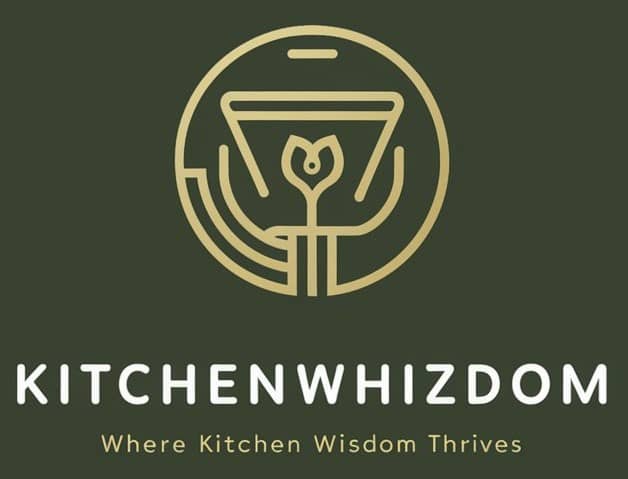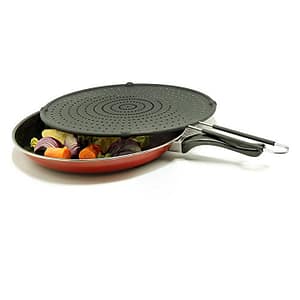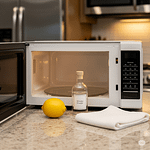
Blog Details

Future of Food: What’s Next for Your Dinner Plate?
Have you ever stopped to think about how much food has evolved over centuries? From hunting and gathering to the advent of agriculture, and then the industrial revolution transforming food production, our plates have always been a reflection of human ingenuity. But what’s next?
In a world grappling with sustainability, health, and a rapidly growing population, the future of food promises to be as exciting as it is delicious. Let’s dive into the fascinating innovations that will soon be gracing your dinner plate.
The Rise of Sustainable Proteins: Beyond Traditional Meat
For generations, meat has been a staple, but its environmental footprint is undeniable. The future is ushering in a diverse array of protein sources that are both delicious and planet-friendly:
- Plant-Based Powerhouses: Beyond the familiar tofu and tempeh, the market for plant-based alternatives is exploding. We’re seeing incredibly realistic meat substitutes made from peas, soy, and even mushrooms, offering textures and flavors that rival their animal counterparts. These innovations are making it easier than ever to incorporate more plant-rich meals into your diet, perhaps even inspiring you to experiment with new recipes in your Kitchen Whizdom Blender for delicious smoothies or sauces.
- Cultivated Meat: Imagine enjoying a juicy steak or tender chicken, grown directly from animal cells in a lab, without the need to raise and slaughter animals. This “cultivated” or “cell-based” meat is still in its early stages but holds immense promise for sustainable protein production.
- Insect Proteins: While it might sound unusual to some, insects are a highly sustainable and nutrient-rich protein source. From protein powders to snack bars, insect-based foods are slowly gaining traction, especially in regions where entomophagy (eating insects) is already common.
Hyper-Personalized Nutrition: Your Body, Your Plate
Gone are the days of one-size-fits-all diets. The future of food is deeply personal. Advances in technology are allowing us to tailor our diets based on our unique genetic makeup, gut microbiome, and even real-time activity levels.
- Genetic Testing & Wearables: Imagine a future where your smartwatch not only tracks your steps but also analyzes your metabolism and suggests specific nutrients you might be lacking. Personalized nutrition services use DNA analysis to recommend the perfect balance of macronutrients and micronutrients for your body.
- AI-Powered Meal Planning: Artificial intelligence will play a crucial role in creating customized meal plans that adapt to your health goals, dietary restrictions, and even your current mood. This could mean less food waste and more efficient use of ingredients, potentially even suggesting recipes for dishes prepared with your favorite Kitchen Whizdom Cast Iron Skillet.
Smart Kitchens & Connected Cooking: The Ultimate Culinary Assistant
Our kitchens are becoming smarter, more efficient, and incredibly intuitive.
- Connected Appliances: Refrigerators that track inventory and suggest recipes based on what you have, ovens that preheat themselves remotely, and smart scales that guide you through precise measurements are already here and becoming more commonplace.
- Robotic Chefs & Automated Systems: While still largely in commercial settings, automated cooking systems are emerging, promising to prepare complex meals with minimal human intervention. Imagine a robot perfecting your pasta sauce every time, or a device that precisely grinds your coffee beans to your exact preference using a high-quality grinder, similar to the precision offered by a Kitchen Whizdom Coffee Grinder.
- Vertical Farms & Urban Agriculture: Bringing food production closer to consumers reduces transportation costs and carbon emissions. Vertical farms, growing crops indoors in stacked layers under controlled conditions, are popping up in urban centers, ensuring fresh, locally grown produce year-round.
What Does This Mean for Your Dinner Plate?
The future of food isn’t just about futuristic gadgets or exotic ingredients. It’s about:
- Greater Variety & Accessibility: Expect a wider range of sustainable and nutritious food options.
- Reduced Food Waste: Smarter systems and personalized approaches will help us make the most of our resources.
- Improved Health Outcomes: Tailored nutrition can lead to better health and well-being.
- More Informed Choices: Access to data and insights will empower you to make healthier and more sustainable food decisions.
The journey towards a more sustainable and personalized food system is well underway. By understanding these trends, you can be an active participant in shaping what lands on your dinner plate in the years to come.
FAQ: The Future of Food
Q1: Will traditional meat disappear with the rise of sustainable proteins?
A1: It’s unlikely that traditional meat will disappear entirely. However, the future will likely see a significant diversification of protein sources, with plant-based and cultivated meats becoming increasingly common and accessible alongside conventional options.
Q2: Is personalized nutrition expensive and only for the elite?
A2: While initial personalized nutrition services can have a cost, the technology is becoming more affordable and mainstream. As data collection and AI improve, personalized recommendations will become more accessible to a wider audience, helping everyone make more informed dietary choices.
Q3: How can I start incorporating future food trends into my current diet?
A3: Start by exploring plant-based alternatives readily available in your local grocery store. Experiment with new fruits, vegetables, and grains. Consider tracking your food intake with an app to become more aware of your habits. Investing in quality kitchen tools, like a good Kitchen Whizdom set of sharp knives, can also make preparing healthier, more diverse meals easier and more enjoyable.
Q4: Are smart kitchen appliances worth the investment?
A4: Smart kitchen appliances can offer convenience, efficiency, and help reduce food waste by tracking inventory and suggesting recipes. Their value depends on your personal cooking habits and budget, but they represent a significant step towards a more connected and efficient kitchen.
Our Products
-
Unique Book Coffee Cup – Stack of Books Design
₹1,681.00 – ₹1,695.00Price range: ₹1,681.00 through ₹1,695.00 Select options This product has multiple variants. The options may be chosen on the product page -
Salt & Pepper Electric Grinder – Rechargeable
₹2,435.00 Select options This product has multiple variants. The options may be chosen on the product page -
Glass Storage Jar – Cork Lid & Minimalist Design
₹2,563.00 Select options This product has multiple variants. The options may be chosen on the product page -
Food grade Silicone Splash Screen – Mess-Free Cooking
₹2,158.00 Select options This product has multiple variants. The options may be chosen on the product page -
Stainless Steel Corn Cob Holders – Mess-Free
₹1,086.00 Select options This product has multiple variants. The options may be chosen on the product page -
Silicone Donut Mold – Makes 6 Non-Stick Donuts
₹833.00 Select options This product has multiple variants. The options may be chosen on the product page
Products
-
Unique Book Coffee Cup – Stack of Books Design
₹1,681.00 – ₹1,695.00Price range: ₹1,681.00 through ₹1,695.00 Select options This product has multiple variants. The options may be chosen on the product page -
Salt & Pepper Electric Grinder – Rechargeable
₹2,435.00 Select options This product has multiple variants. The options may be chosen on the product page -
Glass Storage Jar – Cork Lid & Minimalist Design
₹2,563.00 Select options This product has multiple variants. The options may be chosen on the product page -
Food grade Silicone Splash Screen – Mess-Free Cooking
₹2,158.00 Select options This product has multiple variants. The options may be chosen on the product page










